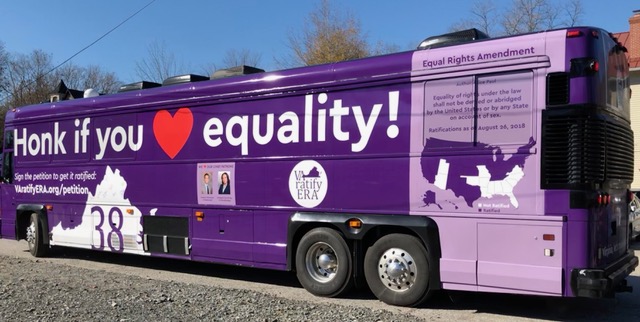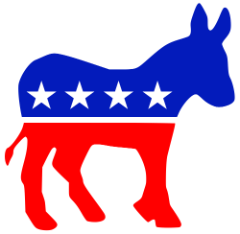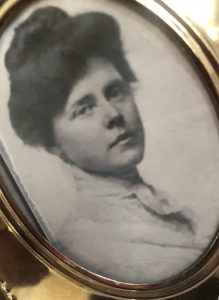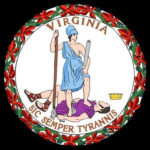
By Susan Laume:
Supporters of the Equal Rights Amendment are sponsoring a 10-day bus tour across Virginia to urge legislators to make Virginia the 38th and final state necessary to achieve ratification. The bus stopped in several locations in Fairfax County on Veterans’ Day, Nov. 11, after visiting Richmond, and continued on to Fredericksburg.
The bus tour is run by VAratifyERA, a non-partisan, single issue campaign focused on this issue. In Fairfax County, the third day of the tour, the bus stopped at George Mason University, Clifton, Falls Church and Fairfax.
At the Clifton stop, state Sen. George Barker (D-39) and his wife Jane were on the bus. Sen. Barker first introduced the ERA in the state legislature in 2012 and has been a strong supporter ever since. Mrs. Barker is co-chair of the Democratic Women of Clifton and Northern Virginia, and a leader in the bi-partisan effort to build a memorial to suffragists near the former Lorton Reformatory location where many suffragists were imprisoned.
Also on the bus were state Delegates Jennifer Carroll Foy (D-2), Hala Ayala (D-51) and Kaye Kory (D-38).
From The Blue View


 of force feeding following hunger strikes, and eventually beatings, choking, and kicking by prison guards during the infamous “Night of Terror” on Nov. 14, 1917, at the Occoquan Workhouse.
of force feeding following hunger strikes, and eventually beatings, choking, and kicking by prison guards during the infamous “Night of Terror” on Nov. 14, 1917, at the Occoquan Workhouse.